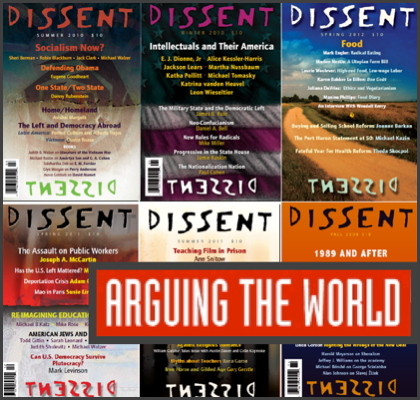A dispatch for the “Arguing the World” blog at Dissent magazine.
Published in Dissent.
I arrived in Detroit on Tuesday for the start of the United States Social Forum, a national-level incarnation of the World Social Forum. The latter was first held in Porto Alegre, Brazil in 2001 and was conceived as a people’s alternative to the World Economic Forum—the exclusive annual gathering of economic elites in Davos, Switzerland.
In this tradition, activists from around the country are getting together this week under the slogan “Another World Is Possible. Another U.S. Is Necessary.” Detroit is a symbolically important location for the assembly. As a commentator on Truthout noted:
“Detroit, a city especially ravaged by the decline in American manufacturing and the foreclosure crisis, was called “the ultimate reflection of America’s pain” by “Dateline NBC.” But it was not chosen to host the forum only for its status as poster child of the global economic and environmental crisis—unemployment in Detroit was at 15.5 percent in March—but also for the grassroots social movements which have begun to fill the void left by a lack of social welfare and regenerative funding.”
Some predictions have suggested that as many as 20,000 people will be attending the social forum. During the opening ceremony an organizer offered a more modest estimate from the stage, stating that “over 10,000 people” had registered and that “over 1000 workshops” would take place.
Whatever the final numbers, lack of mainstream news coverage of the event is almost a given—although there’s no good reason that more than 10,000 people calling for a political agenda significantly to the left of the Democratic Party’s should warrant less attention than Tea Party events that have been of similar size (or, in many cases, smaller.)
My own initial survey suggests that youth activists, the anarchist Left, and representatives of community-based organizations in major U.S. cities are well represented here. I suspect that a variety of international solidarity movements, radical environmentalists, and people working on food issues will also make a solid showing.
Missing, however, are two additional constituencies that were major parts of the global justice movement’s “Seattle coalition”: organized labor and mainstream environment groups. The AFL-CIO made favorable mention of the Social Forum on its blog, noting participation by some union leaders such as UAW President Bob King and Metropolitan Detroit AFL-CIO President Saundra Williams, who briefly addressed the opening ceremony. Yet I did not see big blocs of union t-shirts in today’s mass march through downtown Detroit, and labor’s involvement in workshops seems to be limited. Likewise, if the Sierra Club or their brethren intend to make a significant appearance, they have thus far escaped my notice.
This is unfortunate, for while labor and Big Green may have been the most moderate factions of the global justice coalition in the years around 2000, they brought to the movement a suggestion of greater resources, wider reach, and a disciplined political program. In turn, the more unruly community-based constituencies prodded some usually cautious labor and environmental groups into more vigorous stances on issues of trade and development, among others. That global justice moment was, in other words, a period of unusual cross-fertilization and unexpected alliances.
While more modest, what is on display here in Detroit seems to be healthy enough on its own terms. I’ve come because I support opportunities for progressives to meet, talk, learn from one another, and be inspired. Still, given that this is meant to be a major gathering of the U.S. Left, the question I am wrestling with is: do we owe it to ourselves to expect more?
